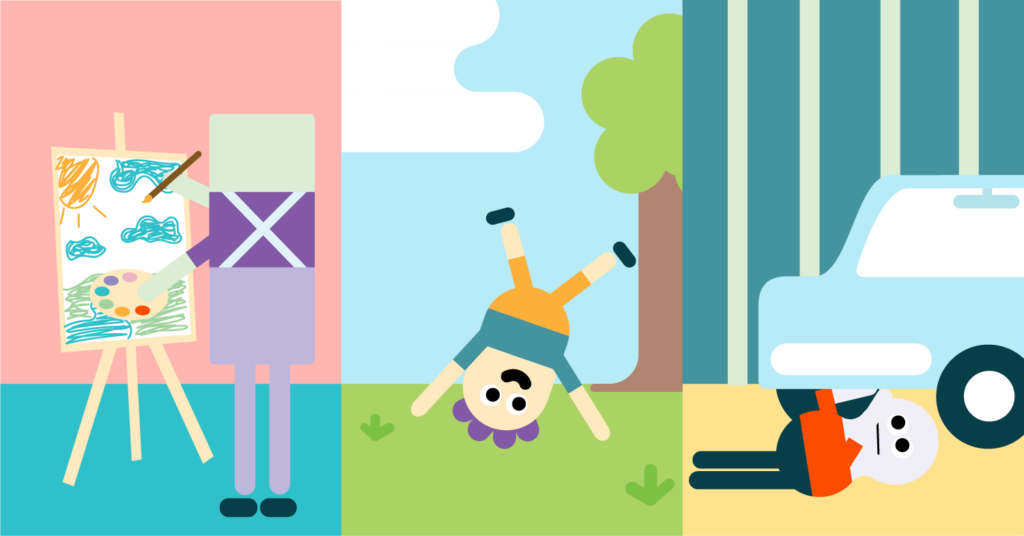Building Relationship Points

by Joanne Mueller, MA, Professional Counselor Associate
“I don’t know what to do. No matter what, my son doesn’t do what I say just because I’m the one who said it.” As a therapist, I hear this a lot in my office, and I have also struggled with this as a parent. We love our kids, and we want to care for and guide them in ways that are good for them. Our children, however, push consistently to make their own decisions. The question my clients are asking is, “What do I do?”
Before I worked in an outpatient clinic, I spent a couple of years working with youth in a residential setting which consisted of a house with five residents and 24-hour staffing. These young people often came from backgrounds where they did not have parents actively involved in their lives, and staff became surrogate parents setting boundaries, listening, caring, and giving instruction about how the world works and what healthy decisions look like. And as surrogate parents, the youth pushed back against them as they strived to claim their independence and send the message, “I make my own decisions.” During staff meetings, this topic surfaced a lot. Staff expressed their dismay that no matter what they said, the residents would often do the opposite. They, too, were asking the question, “What do I do?” The answer that has been the most helpful for me at home and at work is the idea of relationship points.
The concept of relationship points is that you have to lay the foundation of connection before the child or young adult will listen to you. That means spending time with them, listening to them, asking questions about what they are interested in, and doing with them the activities that they enjoy. At one point, the facility I was at mostly had male residents, and they spent a lot of time playing Call of Duty on a PlayStation that two of them purchased jointly. So I asked them if they would teach me how to play. They loved that I was interested, and three of them argued and collaborated on how to best teach the game to me. At one point, I was sitting in the rec room playing, and trying not to die too quickly, while one played the game with me and the other two standing behind us arguing and passionately giving their advice. In the end, I was horrible at the game, but I gained relationship points. They knew that I enjoyed them and that I cared.
In the weeks following, I was able to take one of those youth on a car ride to talk about life. We went through Dutch Bros. to get coffee drinks before driving through the scenic areas surrounding the city where the facility was located. He opened up about what it was like to be arrested at 14 years old and placed in solitary at the local juvenile detention facility, and how he was scared at that time because he didn’t know why he was there. He talked about his depression, how he felt about himself, and about what he wanted in life. We came to the topic of school and how that fit into what he wanted for his future. Honestly, he had difficulty envisioning that there was a future for him because he had so much shame, but through staff building relationships with him as surrogate parents, he was able to work through it over time. He has now graduated high school, is employed, and lives in the community. Without the time I spent with him showing interest in the things he was interested in, he would not have been vulnerable with me and open up about his life, and he certainly would not have listened to anything I said. I had relationship points that I cashed in on that car ride.
Another statement that I have heard from parents is, “My child is so different than me. We don’t have any interests in common!” It can be difficult to connect with someone who likes things that you know nothing about. One of my own children likes technology, computers, and robotics. Honestly, I get lost when he shares the details of what he is learning simply because I don’t have any base knowledge in order to follow him, but I listen because he is important to me. That is the key. In listening and spending time with them, we are showing them through our actions that they are important to us. It doesn’t matter that I have extensive knowledge about what he is telling me. What does matter is that I am building the foundation of our relationship, and because I have done that, I was the first person he texted when his girlfriend broke up with him, and I am the person that he sent a screenshot of his math grade that he was proud of. I have made a point to periodically take him to breakfast, so that he can share with me what he has going on in his life. It is in those moments that I get to have input, and I cash in on the relationship points I have earned. And that is the point, I have earned a place in his life to be able to do that.
Relationship points take work and intentional effort to earn. They are essential for being able to direct and guide our children, and they are a significant part of the answer to that question that many of us ask, “What do I do?” What we need to do is spend time with them and earn that place of trust. The relationship built benefits our children, and it benefits us. We are all better off because of it.


Responses